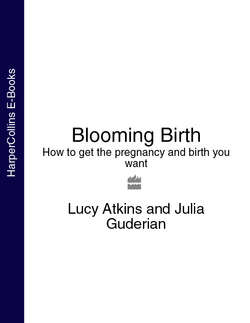Читать книгу Blooming Birth: How to get the pregnancy and birth you want - Lucy Atkins - Страница 74
‘Latent labour’
ОглавлениеYour labour may not begin with thunderclaps, a strike-me-down contraction, and the gushing of broken waters. And it may not begin when you think it should. Roughly three out of ten babies come before their due date, and seven out of ten are born after it.
How the earliest bit of labour feels and how long it takes varies greatly from woman to woman and from pregnancy to pregnancy. Your labour may actually have begun days before you realise it. You can be watching a movie, going to the hairdressers, cleaning your loo, and all the while your cervix is slowly opening – without a twinge. If only this pattern went on until it was time to push, you’d have no need for a book like this. But things do hot up – eventually.
VAGINAL CHECK-UPS | Some women ask for a vaginal exam around their ‘due date’, so that they have something to report. This may not be helpful. First of all, the fewer checks you have the lower your risk of infection, and secondly, the numbers at this stage really don’t mean much in an average pregnancy. You can dilate rapidly or slowly no matter when the process begins. Latent labour may take a couple of hours or it may go on – literally – for days. It may be unnoticeable at first, or really quite painful. There are, however, a few signs that indicate some action:
BLOODY SHOW | The ‘mucous plug’ which blocks your cervix, keeping it sealed, falls out when the cervix starts to stretch. This appears in your knickers (painlessly) as brownish discharge. If you see red, or fresh blood, call your midwife straight away (but do not panic, it may be perfectly fine). Do not, however, assume you’re about to be instantly ravaged by contractions if you see your ‘show’. Many women have ‘a show’ up to two or three weeks before they go into labour. For some it’s a matter of hours.
WATERS BREAKING | ‘When my waters broke with my first baby I was shocked,’ says Sandy, 33, and 5 months pregnant with her second baby, ‘I had no idea that one cup or more of clear fluid would pop out of me.’ Your waters may break suddenly to be followed swiftly by contractions and a baby. This can be a surprising (though not painful) moment, particularly if it’s earlier than you’d expected: ‘Celeste came three weeks early,’ says Mary, mother of Celeste and Nell. ‘My waters broke at four in the morning and I felt all this water just gushing and gushing out – I was certainly not prepared for that.’ But the breaking of waters is not the Biblical sign of labour’s onset that popular myth implies. Many women’s waters break ages before they feel any contractions. ‘My waters broke at 11 p.m. and I couldn’t sleep all night, out of excitement and fear,’ says Jennie, 28, mother of Poppy, 3. ‘I was beside myself when nothing had happened by the morning. Eventually, my labour was induced – 24 hours later.’ About nine out of ten women go into labour naturally within 24–48 hours of their waters breaking. If your waters break and labour doesn’t begin, you should call your midwife. The hospital will want to assess you and the baby for any signs of infection if labour doesn’t start soon. They’ll check whether your waters were clear (i.e. there were no signs of ‘meconium’ or baby’s first poo. This makes the waters look green or brownish and can signal that the baby is in distress). They’ll also check the baby’s heart rate and whether you have any temperature, and they’ll do a vaginal swab. The official government guidelines are that if you are having a healthy pregnancy and are ‘at term’ (i.e. your waters have not broken prematurely) you can be monitored like this for up to 72 hours (at which point, they will have to induce labour as the risk of infection rises).
For other women, the waters don’t break until they are well into established labour. Once in a while babies can even be born with the bag of waters intact.
Word of caution: if you think at any time in pregnancy that fluid is coming out of you (even if it’s just a dribble) then call your midwife. It might be a little leaking pee, but it needs to be checked.
IT COULD BE LABOUR IF:
You have been pregnant for at least 38 weeks
You have an increased backache or feel pressure in your pelvis or bottom
Your nesting urge skyrockets
You have soft poos, or diarrhoea
You have a bloody show
Your vaginal discharge changes (more thick and mucous like)
You feel a manageable, but slightly painful tightening in your abdomen that may not be an intermittent Braxton Hicks contraction
You are restless and feel fluey or have much pinker cheeks than usual (!).
